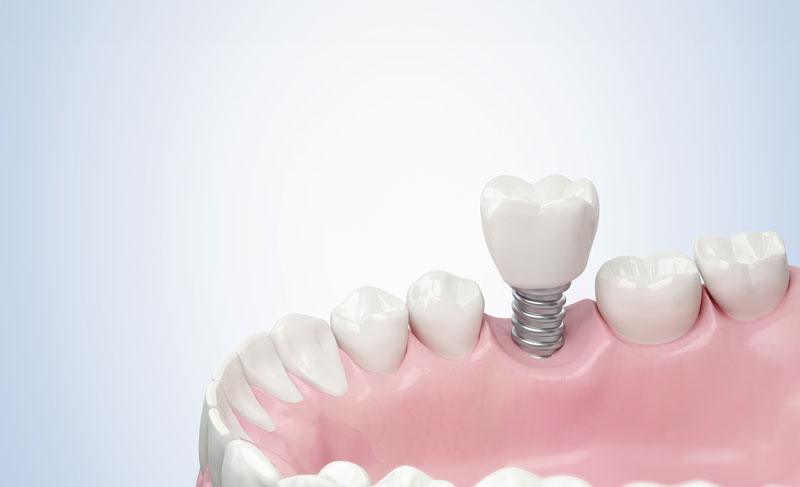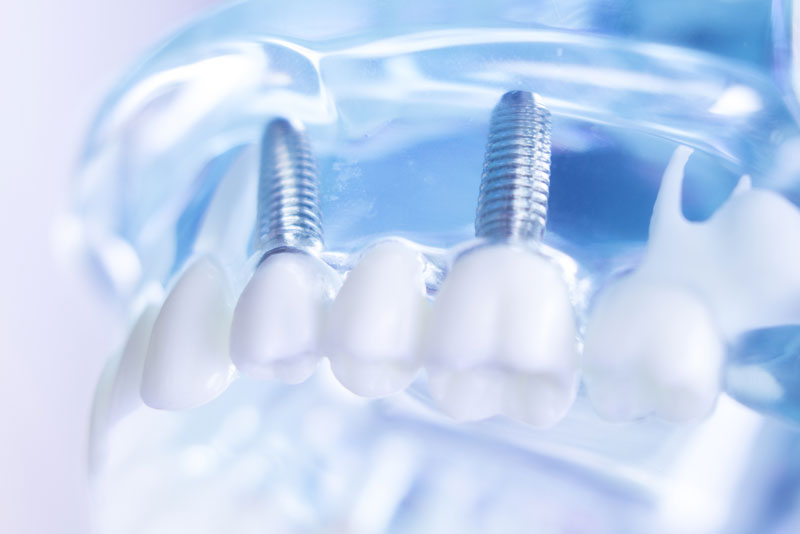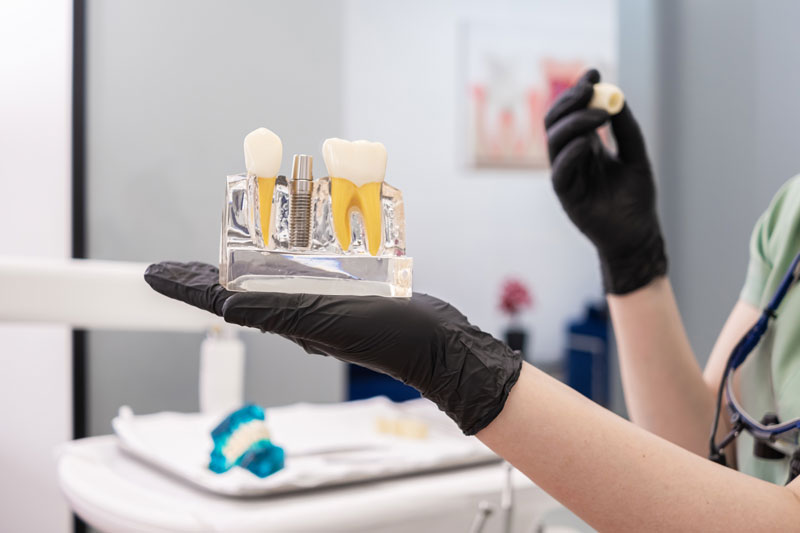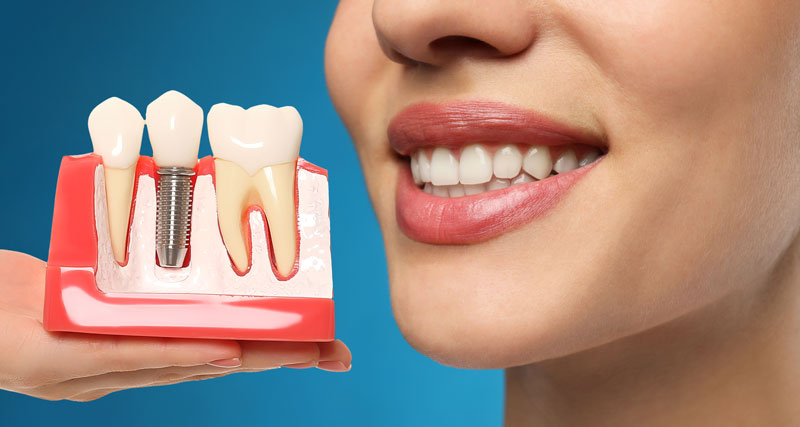Dental Blog - Greenacres, FL
Tips, Facts, And The
Latest In Dentistry

Denture Types For Different Types of Dental Problems

Dentures are artificial teeth that replace lost natural teeth. Dental loss can be caused by tooth decay, gum disease, or facial trauma. Depending on how many teeth you’ve lost, you may need dentures in West Palm Beach.
Facial muscles might droop over time if teeth are absent. Dentures are made to assist you to improve your look by filling in the gaps in your facial feature. Here are different types of dentures in West Palm Beach.

Different Types of Dentures
Dentures are available in many different shapes and materials. The most common types of artificial teeth are as follows:
Full Dentures
Complete dentures, sometimes called full dentures, are detachable teeth replacements that replace the whole set of teeth in a patient. They’re intended to look and feel just like natural teeth.
Mastication is improved with traditional dentures, allowing you to crunch, break, and eat food on a more frequent basis.
If your chewing capabilities were normal before denture implantation, they will be significantly reduced compared to natural teeth or implants. Because the bone lacks anchoring, you won’t be able to create as much chewing power.
Complete dentures are the last resort. Dentures do not prevent bone shrinking, and ill-fitting teeth might sometimes exacerbate it. After tooth loss, only a dental implant will maintain the bone and prevent it from shrinking.
Implant-Supported Bridge or Fixed Partial Dentures
The fixed partial dentures (FPD) are held in place by using existing teeth as abutments. These dentures are also known as implant-supported bridges.
The surrounding teeth that act as the main support for the denture are referred to as abutments. Implant-supported bridges use two dental implants to restore multiple lost teeth.
Implant-supported bridges, unlike complete and detachable partial artificial teeth, are not removable. When there are strong natural teeth on both sides of the missing tooth, these permanent dentures can replace one or more missing teeth in a row.
Fixed partial dentures have the additional results:
- Permanent dentures provide patients a sense of security.
- Detachable artificial teeth are not as strong as permanent ones.
- Better bite and consistent tooth placement
- Protection of the oral structure for a longer period
Fixed partial dentures have the following drawbacks:
- Replacement of neighboring teeth that is irreversible (abutments)
- Abutments are more susceptible to deterioration.
- Periodontal and dental pulp injuries are a possibility.

Removable Partial Dentures
Removable partial dentures (RPD) are different from complete dentures in that they simply replace some lost teeth. Replacement teeth are affixed to a gum-colored plastic base in these types of dentures.
Removable partial dentures are supported by a cast metal supporting structure for further stability. They restore the natural look, sensation, and performance of your teeth.
These dentures are readily removed and changed at any time. They are frequently prescribed for individuals who are unable to have a dental bridge (implant-supported bridge).
Overdentures or Implant-Retained Dentures
These types of dentures are not permanently attached to dental implants. Thus the name overdentures. They snap into position after fastening onto the abutments or metal posts. Implant dentures can support several teeth, and in certain cases, a whole set of teeth.
Compared to conventional dentures, implant-retained dentures provide more stability and improved chewing performance. You must, however, take them out every night to clean them.
Implant-retained dentures are available in a variety of forms.
- Permanent lower teeth can be replaced with an implant-retained replacement with locator attachment or ball attachment.
- A bar-shaped implant that supports a full set of artificial teeth in the lower jaw is known as a bar attachment.
Advantages of implant-retained dentures include:
- They have an extended lifespan.
- They provide you a set of functional, natural-looking teeth that are also more comfortable.
- More natural chewing and biting surfaces are developed.
Immediate Dentures
After your natural teeth have been removed, you can utilize removable instant dentures. Immediate dentures, while handy, are more difficult to wear than traditional dentures because they are not custom-molded to the gums.
Immediate dentures are available in a variety of forms.
- Conventional immediate dentures. Artificial teeth are detachable and may be used right once after genuine teeth have been extracted. They’re composed of the same materials as traditional dentures, too.
- Interim immediate dentures. They improve oral function for a brief time before permanent artificial teeth are placed. Interim artificial teeth, on the other hand, are generally made of flimsier materials because they are only worn for a short time.
Snap-In Dentures
Removable implant-supported overdentures are sometimes known as snap-in dentures or snap-on dentures. Dental implants are screwed into your jawbone and hold snap-on dentures in place.
You can snap on the implant-supported denture once the implants have been surgically placed into the bone. The overdenture can be taken out at any moment, but not the implants.

Looking for Dentures in West Palm Beach?
It is essential to take good care of your dentures, regardless of the type you choose. If you are still undecided about which dentures to choose, head on over to Ferber Dental Group.





